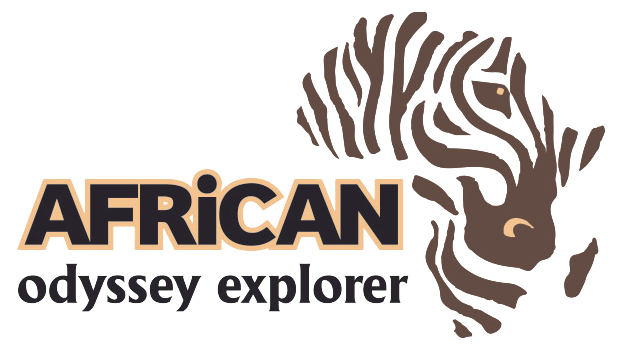AFRICAN ODYSSEY EXPLORER LIMITED is committed to promoting sustainable tourism practices that conserve the natural environment, support local communities, and provide enriching experiences for our clients. This policy outlines our approach to achieving these objectives and ensuring that our operations are conducted responsibly and sustainably.
Vision and Mission
Vision: To be a leader in sustainable tourism, offering exceptional safari experiences that protect wildlife, preserve natural habitats, and benefit local communities.
Mission: To provide unforgettable safari adventures while minimizing our environmental impact, promoting conservation efforts, and fostering socio-economic development in the regions we operate.
Core Principles
- Environmental Conservation:
- Minimize our ecological footprint through sustainable practices and eco-friendly operations.
- Support conservation initiatives that protect wildlife and their habitats.
- Promote the use of renewable energy and reduce reliance on non-renewable resources.
- Community Engagement and Support:
- Partner with local communities to ensure tourism benefits are equitably shared.
- Support community projects that enhance local livelihoods, education, and health.
- Respect and promote local cultures and traditions.
- Responsible Tourism Practices:
- Educate clients on responsible tourism practices and encourage respectful interactions with wildlife and local communities.
- Ensure all tours and activities adhere to ethical and sustainable standards.
- Promote the use of sustainable transportation and accommodation options.
- Economic Sustainability:
- Contribute to the local economy by sourcing goods and services from local suppliers.
- Provide fair wages and safe working conditions for all employees and partners.
- Support local businesses and artisans by promoting their products and services to our clients.
Environmental Conservation Strategies
- Waste Management:
- Implement waste reduction, reuse, and recycling programs across all operations.
- Minimize single-use plastics and encourage the use of reusable alternatives.
- Properly dispose of hazardous waste to prevent environmental contamination.
- Energy and Water Conservation:
- Install energy-efficient systems and promote the use of renewable energy sources.
- Implement water-saving measures, including low-flow fixtures and rainwater harvesting.
- Educate staff and clients on the importance of conserving water and energy.
- Wildlife Protection:
- Support anti-poaching initiatives and wildlife conservation programs.
- Ensure that all wildlife interactions are ethical and do not harm the animals or their habitats.
- Promote responsible wildlife viewing practices that minimize disturbance to the animals.
Community Engagement and Support Strategies
- Community Partnerships:
- Collaborate with local communities to identify and support their development needs.
- Provide financial and logistical support for community-led projects.
- Ensure that community members are actively involved in decision-making processes related to tourism development.
- Cultural Preservation:
- Promote and respect local cultures, traditions, and heritage.
- Encourage clients to engage in cultural experiences that are respectful and beneficial to the local communities.
- Support cultural festivals, events, and initiatives that celebrate local heritage.
- Education and Training:
- Offer training and capacity-building programs for local community members to enhance their skills and employability in the tourism industry.
- Provide environmental education programs to raise awareness about conservation issues.
- Support educational initiatives that improve literacy and learning opportunities for local children.
Responsible Tourism Practices Strategies
- Client Education:
- Provide clients with information on sustainable tourism practices and responsible behavior.
- Encourage clients to minimize their environmental impact during their travels.
- Promote the importance of respecting local customs, wildlife, and natural resources.
- Sustainable Operations:
- Ensure that all safari activities and accommodations meet high standards of sustainability.
- Monitor and evaluate the environmental impact of our operations and implement improvements as needed.
- Encourage the use of eco-friendly products and services in all aspects of our business.
- Sustainable Transportation:
- Promote the use of low-emission vehicles and other sustainable transportation options.
- Encourage clients to offset their carbon emissions through certified programs.
- Support the development of infrastructure that promotes sustainable travel, such as bike paths and public transportation.
Economic Sustainability Strategies
- Local Sourcing:
- Source goods and services from local suppliers to support the local economy.
- Promote local food, crafts, and products to our clients.
- Encourage other tourism operators to adopt similar local sourcing practices.
- Fair Employment Practices:
- Provide fair wages, benefits, and safe working conditions for all employees.
- Ensure that employment opportunities are accessible to local community members.
- Promote gender equality and diversity in our workforce.
- Support for Local Businesses:
- Partner with local businesses to enhance their visibility and market reach.
- Encourage clients to visit and support local shops, restaurants, and attractions.
- Provide training and mentoring for local entrepreneurs to help them succeed in the tourism industry.
Monitoring and Evaluation
- Regularly assess the environmental, social, and economic impacts of our operations.
- Use key performance indicators (KPIs) to track progress and identify areas for improvement.
- Engage stakeholders, including clients, employees, and community members, in the evaluation process.
- Report on our sustainability performance and share our achievements and challenges.
Continuous Improvement
- Stay informed about best practices and emerging trends in sustainable tourism.
- Participate in industry forums, networks, and partnerships to promote sustainability.
- Continuously seek opportunities to innovate and improve our sustainability practices.
- Encourage feedback from clients and stakeholders to enhance our sustainability initiatives.
AFRICAN ODYSSEY EXPLORER LIMITED is dedicated to promoting sustainable tourism that respects the environment, supports local communities, and provides memorable experiences for our clients. Through our commitment to sustainable practices, we aim to contribute positively to the conservation of natural resources, the well-being of local communities, and the overall sustainability of the tourism industry.
Note: This Sustainable Tourism Policy is a living document and will be reviewed and updated regularly to ensure its relevance and effectiveness in achieving our sustainability goals.


